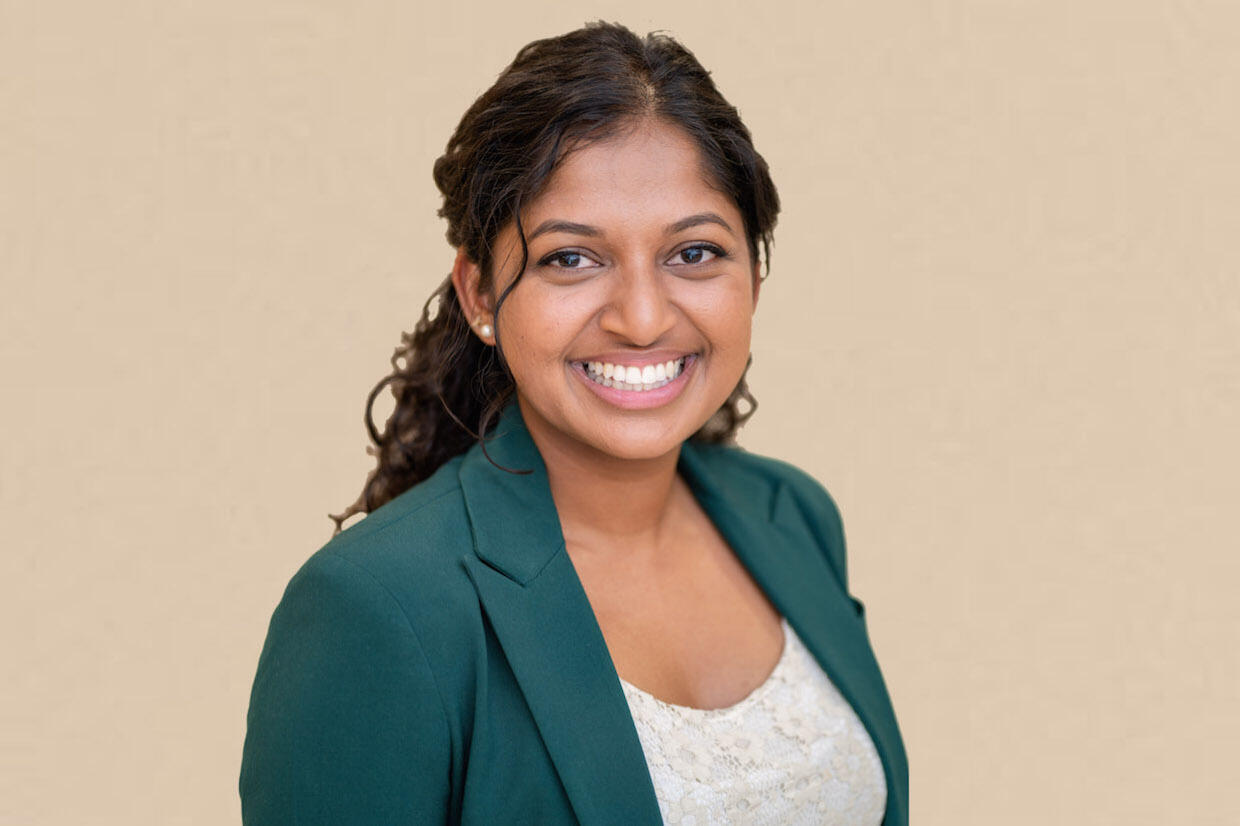
Feb. 5, 2019
Prestigious fellowship provides medical student a chance to study health beyond the clinic
Share this story
By Sarah Vogelsong
For one year, Avanthi Jayaweera is exploring the connections between medicine and the political and social factors that affect individuals’ health thanks to the American Medical Student Association’s Education and Advocacy Fellowship. Awarded annually to one U.S. medical student, the fellowship provides the recipient a chance to help shape educational and advocacy programming while delving into issues ranging from health care access to global health equity, diversity and social justice.
“My medical training can only take me so far,” said Jayaweera, a student at the Virginia Commonwealth University School of Medicine. “If we want to strive for sustainable solutions for the community, we need to challenge ourselves to look at our system as a whole and analyze the intersection of policy and health.”
For Jayaweera, accepting the fellowship meant deferring graduation for a year, a choice that can feel risky for students already committed to at least seven years of medical school and training.
“I was nervous about possibly being away from clinical medicine for a year,” Jayaweera said. “But I just knew this was a once-in-a-lifetime opportunity to have this much time to study these policies.”
As part of the fellowship, Jayaweera spends time in AMSA’s Northern Virginia headquarters and travels around the nation to work with local association chapters. She also completed a six-week clinical rotation with Kaiser Permanente Northern California Residency Programs focused on community-based issues — in Jayaweera’s case, working with Spanish-speaking patients as well as transgender and non-binary communities.
As the Education and Advocacy Fellow, Jayaweera also oversees AMSA campaigns such as the Med Out the Vote, a program that encourages health care providers to vote, and Just Medicine, an initiative that seeks to make health care more objective, evidence based and affordable.
“It’s frustrating when the problem isn’t that we don’t have a cure. The problem is that we have a cure, but it’s too expensive,” she said. “It’s almost the same problem: Patients still don’t have access to it. We can’t have affordable health care without affordable meds.”
Many of Jayaweera’s efforts as a fellow have focused on coming up with more effective strategies to get medical students involved with health care policy and training them to be advocates within the profession. That has involved everything from offering local AMSA chapters seminars on prescription-drug costs to teaching them how to set up advocacy days and meet with elected officials.
“I’m trying to find different ways to empower students to talk about these issues with confidence and expertise,” Jayaweera said.
“Even as a physician, there are lots of factors outside of our clinical scope that affect health,” she said. Access to grocery stores with healthy food, living in a safe neighborhood where people can go outside to exercise, and affordable drug prices are only a few of the most obvious. And those are things that I can’t personally control in the clinic.”
It is for that reason that in looking at her own mission, Jayaweera sees more than each individual patient.
“I view the community as my patient,” said Jayaweera, who is active with the VCU School of Medicine International/Inner City/Rural Preceptorship program.
Mark Ryan, M.D., an associate professor in the School of Medicine, serves as one of Jayaweera’s mentors, both as director of the preceptorship program and as adviser to VCU’s AMSA chapter.
“The thing that strikes me most powerfully is her genuine desire to use her training and her skills as a health professional to help communities and individuals strive for the best possible health that’s available to them,” he said. “It’s been this common theme of seeing the role of a physician, the role of a medical professional, as being more than a prescription.”
He sees the fellowship as a logical extension of the path Jayaweera has taken since arriving at VCU. She has been involved with the American Medical Student Association since before she started medical school, and has long been sensitive to the connections between medicine and the political and social factors that impact individuals’ health.
“If I don’t speak up on these issues, who will?” she said. “As physicians and future physicians, we are in a position where we’re natural leaders. This is not being political. This is standing up for our communities and our neighbors and the people we live with on a day-to-day basis.”
Subscribe to VCU News
Subscribe to VCU News at newsletter.vcu.edu and receive a selection of stories, videos, photos, news clips and event listings in your inbox.







